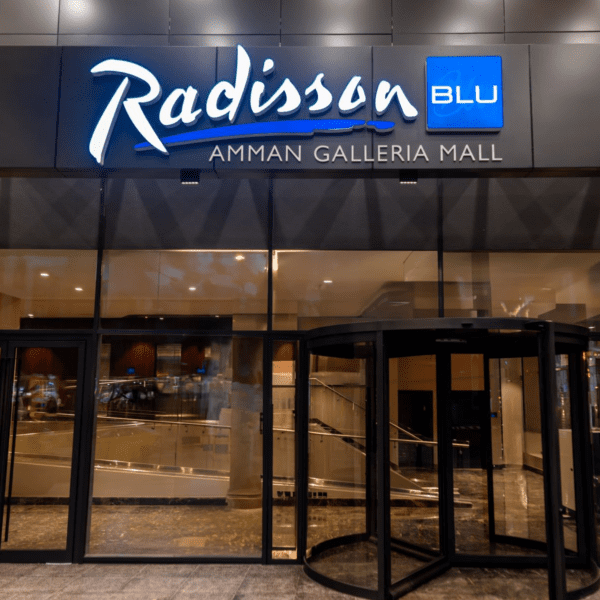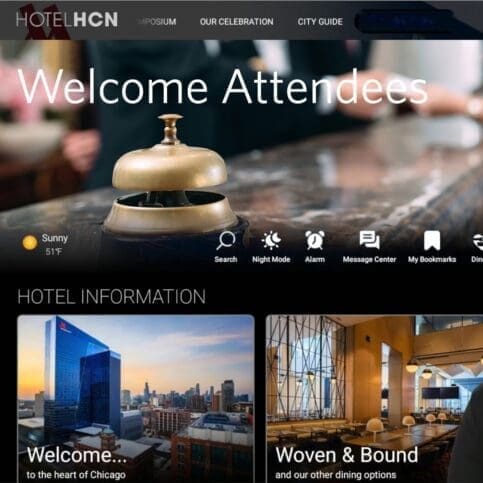The hospitality industry is well-known to be consumer-centric and it is obvious that tomorrow’s guests will be sophisticated technology users. Hotels, restaurants, airlines, cruise lines and other segments within the industry must create a valuable customer journey from start to finish in order to remain competitive. As the future is all about personalization and engagement, the hospitality industry should be committed to creating an in-depth understanding of the customer journey, gathering and analyzing information about customers, and gaining a deeper understanding of the customer experience by adopting artificial intelligence.
Artificial intelligence (AI) refers to the performance of seemingly intelligent behaviours by computers or machines and is associated with concepts of automation and big data. Today, the collection of customer data, combined with the improvements to computer technology, mean that AI can be utilized for a huge range of functions, from basic customer service, to personalization tasks, more advanced problem-solving, and even for sales processes and direct messaging.
Companies in the hospitality industry have been able to increase the efficiency of data analysis to improve customer service, increase customer expectations and adapt to market and other unforeseen changes. Several hospitality companies are using AI robots and programs to improve guest experience. Here are some standout examples:
- Amadeus has a custom-made travel packaging solution that analyzes the social media activity of travelers and uses the results to create a model of interest.
- Avvio, a hotel technology provider, recently launched Allora, a direct booking platform powered by AI. Allora’s job is to drive direct bookings and guest loyalty by orchestrating better online experiences. The technology relies on learning models to analyze large volumes of data and identifies which variations will yield the best booking engine configuration. With the collected data, Allora can have more personalized interactions with guests and move the booking process away from a cookie-cutter approach.
- Connie the Concierge: is employed by Hilton and can give guests a range of tips on what attractions, restaurants or activities to investigate. The technology learns from every interaction with customers and is constantly improving the knowledge and service it can impart.
- Rose, a personal assistant chatbot, is boosted by the presence of a distinct personality. Customers are first made aware of this by a calling card that they receive at check-in. It reads: ‘Know my secrets. Text me’ and ‘I am the answer to the question that you never asked’.
- Many other examples exist such as Mario, who welcomes guests at Ghent Marriott, and the dinosaur robot checks guests in at Henn-na Hotel in Japan.
- Big chains like Hyatt or Starwood have recently implemented chatbots (i.e. an automated messaging service consisting of a computer program designed to generate conversations with human users) as a new customer channel service. Even giant online travel aggregators like Expedia, Skyscanner and Booking.com have implemented chatbot technology to assist their clients.
- Holiday Inn has become the first major hotel chain in Japan to adopt the latest AI chatbot concierge, Bebot.
Chatbots represent an innovative frontier in customer experience, a new type of digitalized communication. Chatbots will replace humans – up to a certain point – in assisting customers online. However, any complex queries will be passed on to humans. But as technology becomes ever more sophisticated, this might not be the case in the future, with chatbots taking on more and more complex tasks.
An entire generation of guests will prefer not to pick up the phone to reception or talk to a human being. They will also not be accustomed to waiting for someone to answer a simple question or for something to be distributed. Chatbots can provide a single product solution that addresses this type of guest across multiple different scenarios in multiple languages with very limited resources required from the hotel point of view – therefore delivering a better experience while saving on staff costs.
Hospitality companies are using AI to automate many aspects of booking, recommendations and customer service. AI is able to handle as many as 65% of customer requests. The automation of customer engagement means customers are able to receive the immediate feedback they are looking for, leading to an increase in retention rates. Personalization options are endless, so hospitality companies can deliver tailor made offers or options instantly and directly to the guest via chat at any point before, during or after their stay. Customer loyalty can be increased with a mixture of personalized, relevant content, all delivered by the AI bot in conjunction with its integration to the best communication platforms.
About the author
Serge Chamelian is the managing director of h-hotelier, a hospitality services firm that offers a holistic approach to business intelligence solutions, revenue management consultancy and training and development programs among many others.































